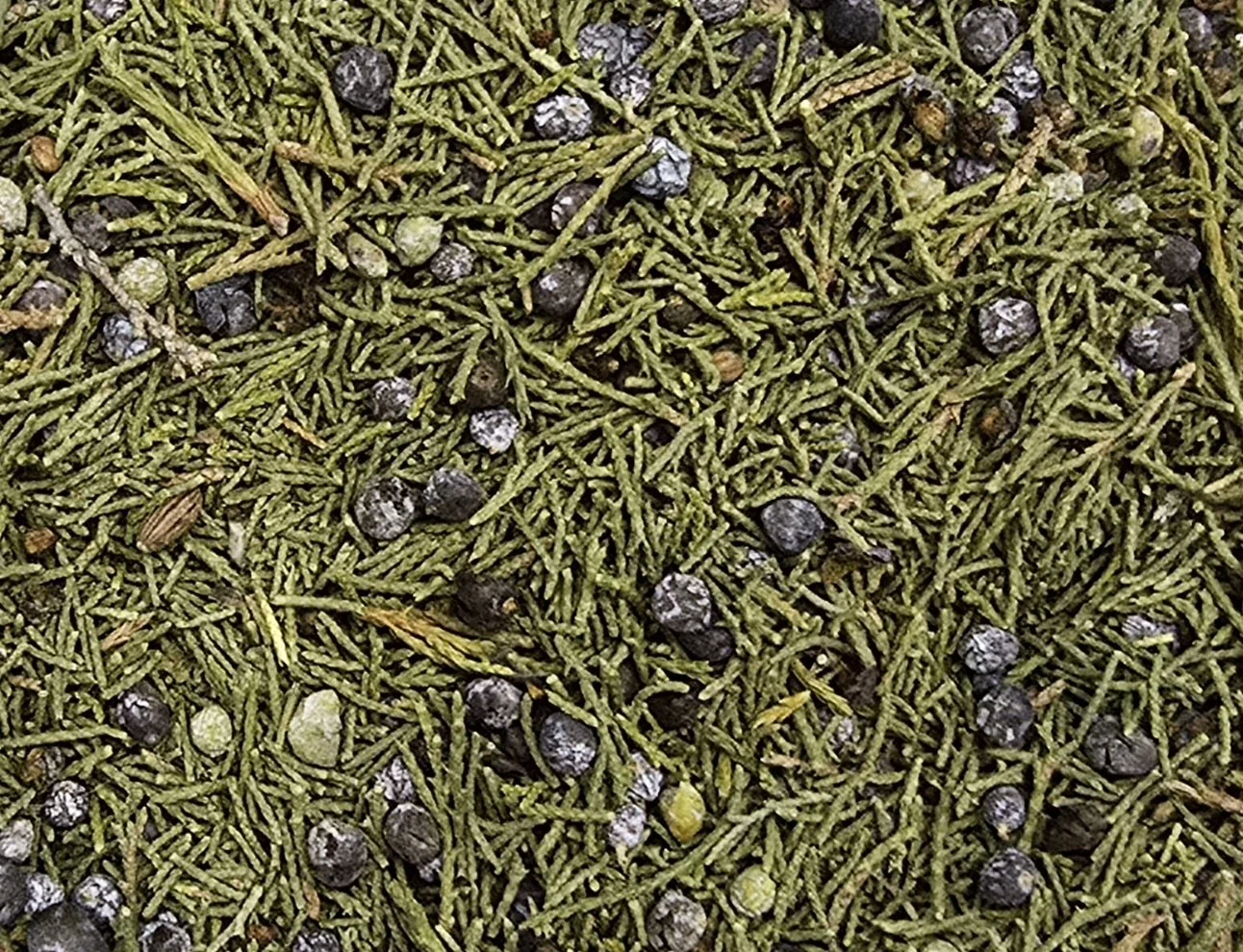Wild crafted (harvested) Juniper berries and leaves. Air dried in muted sunlight to retain it’s color and aromatic perfume. One (1) ounce packages.
Traditional uses for Juniper:
Traditional uses for juniper include flavoring food and drinks, especially gin, and using the berries and branches in teas to treat digestive issues, colds, and respiratory problems. Juniper oil was used topically for skin conditions and joint pain, while the plant was also used for spiritual cleansing, warding off evil, and as a spiritual symbol.
Important Note: Always consult a physician or medical herbalist before using any herb or plant for medicinal purposes.
Medicinal Uses
Digestive Health:
Juniper berries were consumed in teas to aid indigestion, reduce bloating, and improve overall digestion.
Respiratory Health:
Juniper leaves and branches were used in steam inhalations or teas to treat coughs, sore throats, and congestion.
Urinary Tract Health:
The diuretic properties of juniper were used to help flush excess fluids and uric acid from the body, and to potentially disinfect the urinary tract.
Skin Conditions:
Juniper oil and washes were applied to the skin to treat various issues like acne, warts, eczema, and psoriasis.
Pain Relief:
Applying juniper oil topically was thought to help with joint and muscle pain, according to Growing Juniper As Herb Plants.
Antiseptic Properties:
The oil's antibacterial properties made it useful for treating minor skin wounds and bites.
Culinary and Other Uses
Flavoring:
Juniper berries are a key flavoring in gin and are also used to season meats and other food items, particularly during pickling.
Spiritual Practices:
Juniper has been used for spiritual cleansing, in smudge sticks to attract good fortune, and as a symbolic plant in Native American cultures.
Cosmetics and Perfumery:
Juniper tar and essential oils have been used in perfumes, soaps, and cosmetics.
Wild crafted (harvested) Juniper berries and leaves. Air dried in muted sunlight to retain it’s color and aromatic perfume. One (1) ounce packages.
Traditional uses for Juniper:
Traditional uses for juniper include flavoring food and drinks, especially gin, and using the berries and branches in teas to treat digestive issues, colds, and respiratory problems. Juniper oil was used topically for skin conditions and joint pain, while the plant was also used for spiritual cleansing, warding off evil, and as a spiritual symbol.
Important Note: Always consult a physician or medical herbalist before using any herb or plant for medicinal purposes.
Medicinal Uses
Digestive Health:
Juniper berries were consumed in teas to aid indigestion, reduce bloating, and improve overall digestion.
Respiratory Health:
Juniper leaves and branches were used in steam inhalations or teas to treat coughs, sore throats, and congestion.
Urinary Tract Health:
The diuretic properties of juniper were used to help flush excess fluids and uric acid from the body, and to potentially disinfect the urinary tract.
Skin Conditions:
Juniper oil and washes were applied to the skin to treat various issues like acne, warts, eczema, and psoriasis.
Pain Relief:
Applying juniper oil topically was thought to help with joint and muscle pain, according to Growing Juniper As Herb Plants.
Antiseptic Properties:
The oil's antibacterial properties made it useful for treating minor skin wounds and bites.
Culinary and Other Uses
Flavoring:
Juniper berries are a key flavoring in gin and are also used to season meats and other food items, particularly during pickling.
Spiritual Practices:
Juniper has been used for spiritual cleansing, in smudge sticks to attract good fortune, and as a symbolic plant in Native American cultures.
Cosmetics and Perfumery:
Juniper tar and essential oils have been used in perfumes, soaps, and cosmetics.



